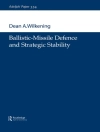This book uses hundreds of hours of newly opened interviews and other sources to illuminate the life and times of the nation’s forty-second president, Bill Clinton. Combining the authoritative perspective of these inside accounts with the analytic powers of some of America’s most distinguished presidential scholars, the essays assembled here offer a major advance in our collective understanding of the Clinton White House. Included are path-breaking chapters on the major domestic and foreign policy initiatives of the Clinton years, as well as objective discussions of political success and failure. 42 is the first book to make extensive use of previously closed interviews collected for the Clinton Presidential History Project, conducted by the Presidential Oral History Program of the University of Virginia’s Miller Center. These interviews, recorded by teams of scholars working under a veil of strict confidentiality, explored officials’ memories of their service with President Clinton and their careers prior to joining the administration. Interviewees also offered political and leadership lessons they had gleaned as eyewitnesses to and shapers of history. Their spoken recollections provide invaluable detail about the inner history of the presidency in an age when personal diaries and discursive letters are seldom written. The authors producing this volume had first access to more than fifty of these cleared interviews, including sessions with White House chiefs of staff Mack Mc Larty and Leon Panetta, Secretaries of State Warren Christopher and Madeleine Albright, National Security Advisors Anthony Lake and Sandy Berger, and a host of political advisors who guided Clinton into the White House and helped keep him there. This book thus provides a multidimensional portrait of Bill Clinton’s administration, drawing largely on the observations of those who knew it best.Contributors Spencer D. Bakich, University of Richmond Brendan J. Doherty, United States Naval Academy Patrick T. Hickey, West Virginia University Elaine Kamarck, Center for Effective Public Management, Brookings Institution Sidney M. Milkis, University of Virginia Megan Moeller, University of Texas at Austin Michael Nelson, Rhodes College and the Miller Center, University of Virginia Bruce F. Nesmith, Coe College Barbara A. Perry, Miller Center, University of Virginia Paul J. Quirk, University of British Columbia Russell L. Riley, Miller Center, University of Virginia Andrew Rudalevige, Bowdoin College Robert A. Strong, Washington and Lee University Sean M. Theriault, University of Texas at Austin
สารบัญ
Foreword Elaine Kamarck
Preface Michael Nelson, Barbara A. Perry, and Russell L. Riley Bill Clinton’s Road to the White House
Introduction: History and Bill Clinton
Russell L. Riley
Part I POLITICS
1. Redividing Government: National Elections in the Clinton Years and Beyond
Michael Nelson
2. Triangulation: Position and Leadership in Clinton’s Domestic Policy
Bruce F. Nesmith and Paul J. Quirk
Part II DOMESTIC AND ECONOMIC POLICY
3. Compromise and Confrontation: Clinton’s Evolving Relationship with Congress
Sean M. Theriault, Patrick T. Hickey, and Megan Moeller
4. Root Canal Politics: Economic Policy Making in the New Administration
Brendan J. Doherty
5. The Broken Places: The Clinton Impeachment and American Politics
Andrew Rudalevige
6. Clinton and Welfare Reform: An Oral History
Michael Nelson
7. Hillary Rodham Clinton: Recasting the Role of First Lady
Barbara A. Perry
Part III FOREIGN POLICY
8. The Reluctant Grand Strategist at War: Diplomacy and Force in Bosnia and Kosovo
Spencer D. Bakich
9. Peacemaker’s Progress: Bill Clinton, Northern Ireland, and the Middle East
Robert A. Strong
Conclusion: Clinton’s Legacy for Politics and Government
Sidney M. Milkis
Appendix 1: Interviewees for the William J. Clinton
Presidential History Project
Appendix 2: Interviewers for the William J. Clinton
Presidential History Project
เกี่ยวกับผู้แต่ง
Michael Nelson is the Fulmer Professor of Political Science at Rhodes College, a Senior Fellow at the University of Virginia’s Miller Center, and Senior Contributing Editor of the Cook Political Report. He won the American Political Science Association’s Richard E. Neustadt Award for best book on the presidency in 2014 for Resilient America: Electing Nixon in 1968, Channeling Dissent, and Dividing Government and the Southern Political Science Association’s V. O. Key Award for best book on southern politics in 2006 for How the South Joined the Gambling Nation: The Politics of State Policy Innovation. Barbara A. Perry is the Miller Professor of Ethics and Institutions and Director of Presidential Studies at the University of Virginia’s Miller Center. She is the author or editor of numerous books, including Rose Kennedy: The Life and Times of a Political Matriarch, The Michigan Affirmative Action Cases, and Jacqueline Kennedy: First Lady of the New Frontier. Nelson and Perry are coeditors of 41: Inside the Presidency of George H. W. Bush, also from Cornell. Russell L. Riley is Associate Professor and Co-Chair of the Presidential Oral History Program at the University of Virginia’s Miller Center. He is the author of The Presidency and the Politics of Racial Inequality: Nation-Keeping from 1831 to 1965 and coeditor with Michael Nelson of Governing at Home: The White House and Domestic Policymaking, among other books.












